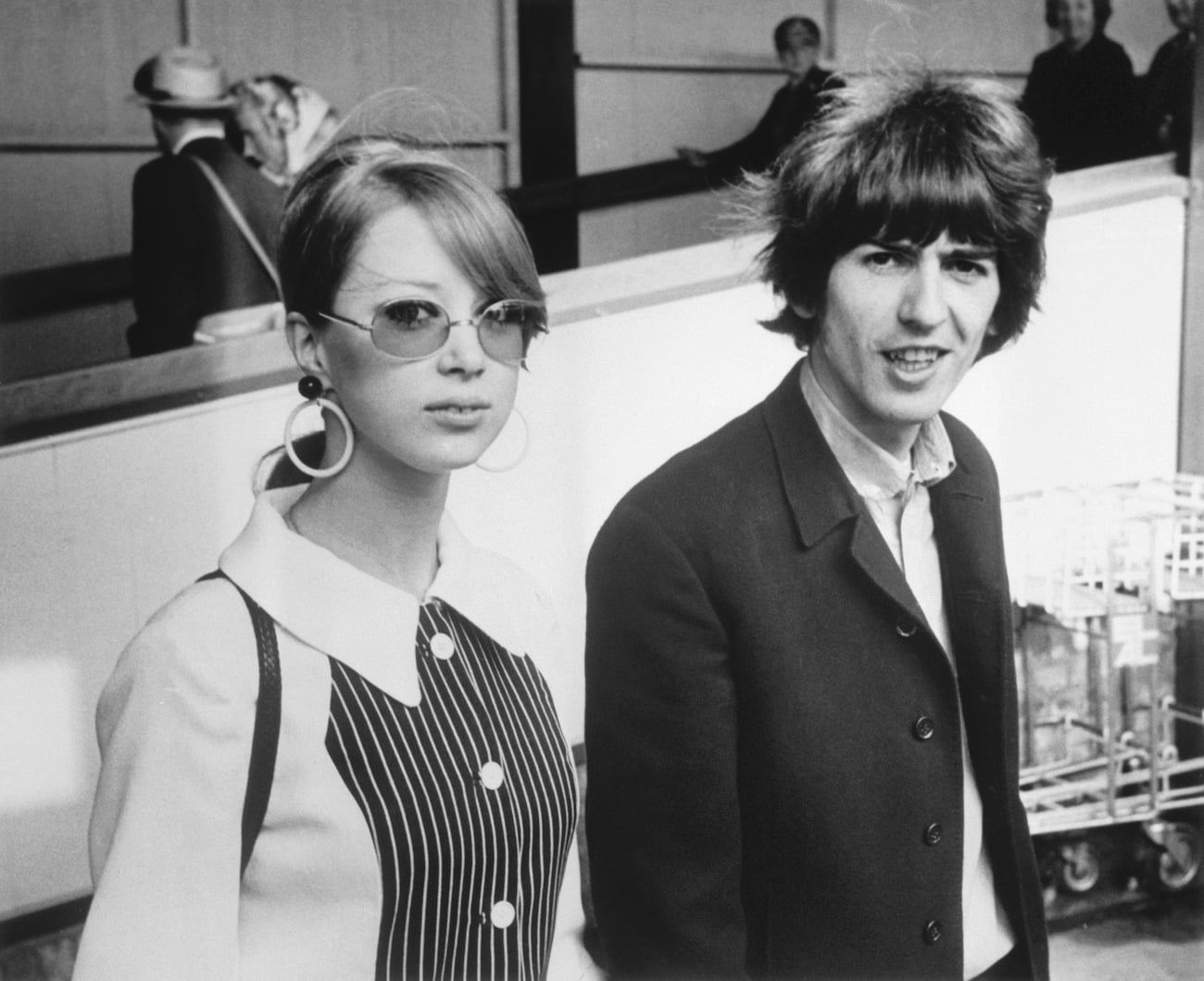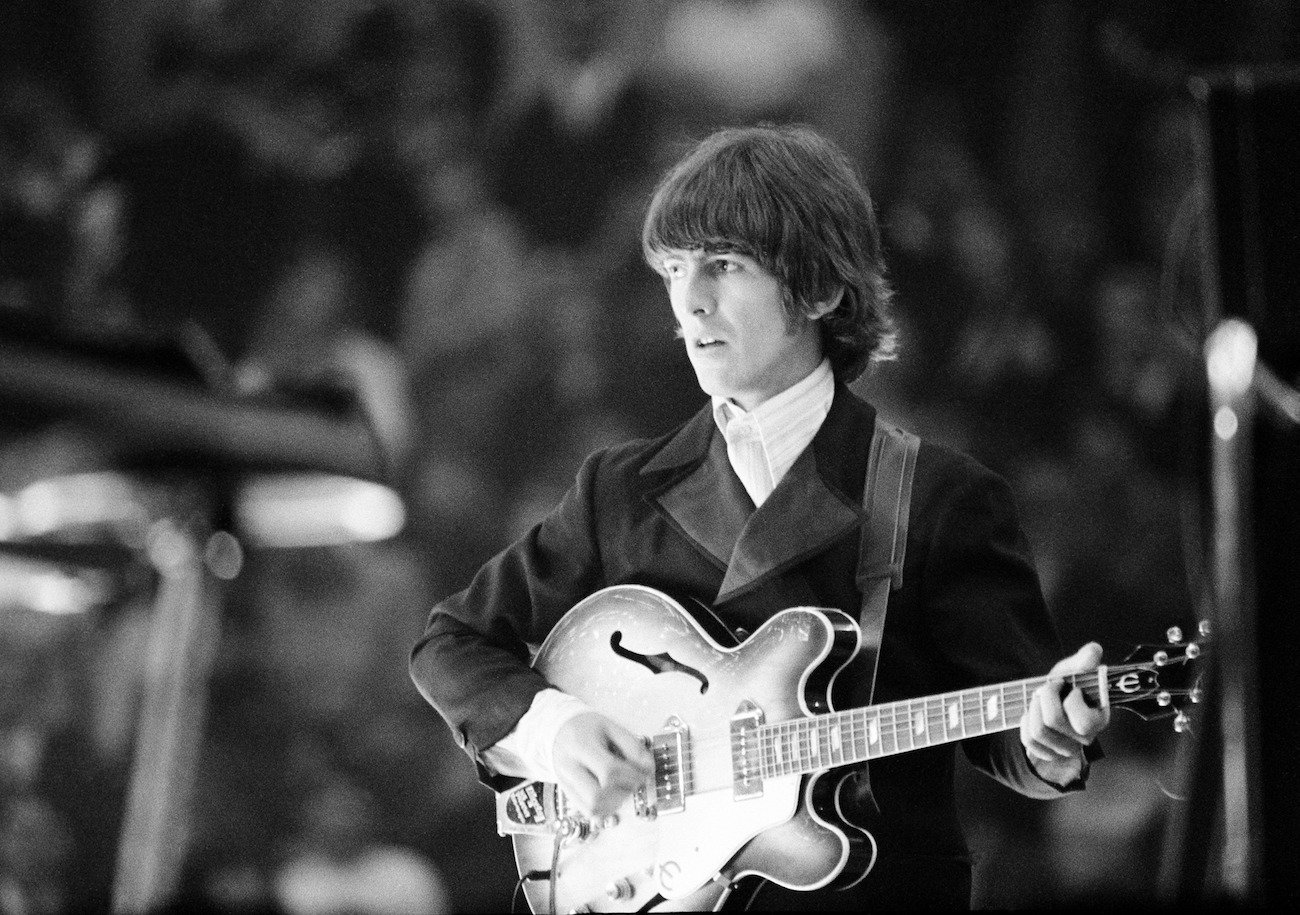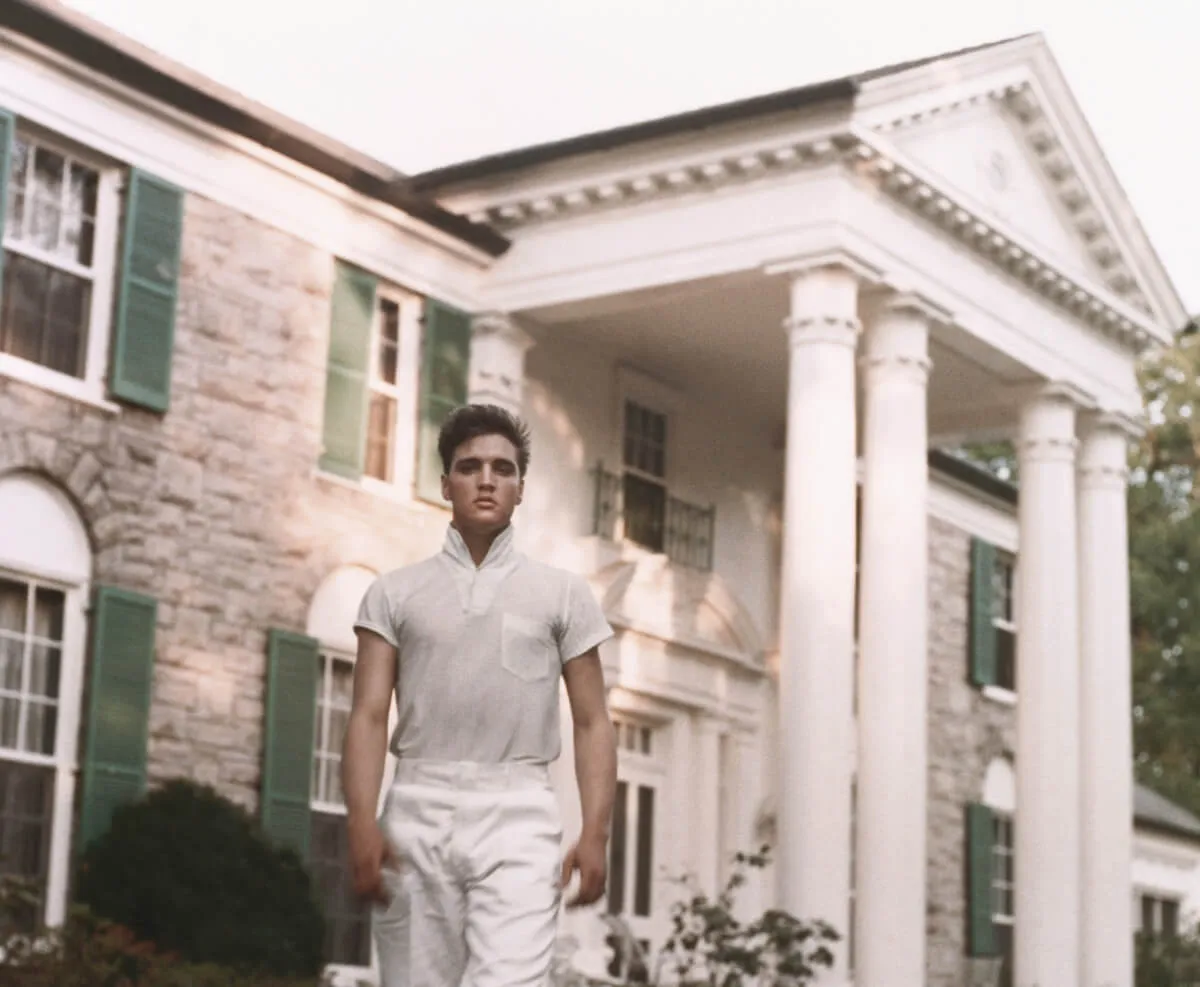
George Harrison Didn’t Have to Talk to Communicate With People During His First Trip to India: ‘There Is No Bulls***’
George Harrison said he didn’t have to speak to communicate with people during his first trip to India in 1966. The Beatle had recently embarked on his spiritual journey but wanted to see the land of the Gods with his own two eyes. That first trip had a massive impact on George.

George Harrison traveled to India to fully understand spiritualism
In 1965, George and his fellow Beatle, John Lennon, took LSD for the first time. George said taking the hallucinogen opened his mind to God-consciousness. While he was on the drug, George heard the words “Yogis of the Himalayas.” However, George didn’t exactly know what that meant.
Around this time, George had hit a wall where nothing impressed him. Fame had become boring. There had to be more to life. George wanted to embark on a journey to find the answers. Meeting his musical guru, Ravi Shankar, came at a perfect time.
Shankar began teaching George the sitar immediately after they met. The famous sitarist also gave the Beatle religious texts.
Shankar’s lessons struck a chord somewhere deep inside George. He was forever changed and could have left behind everything in his life to learn more. “I felt I wanted to walk out of my home that day and take a one-way ticket to Calcutta,” George said. “I would even have left Pattie behind in that moment.”
However, it became evident to George that he needed to see the place where the music and spirituality he loved originated. Shortly after The Beatles’ last concert, George, his wife, Pattie Boyd, Shankar, and his assistant, departed for India.
Initially, no one in Bombay recognized him, but that quickly changed. So, George and everyone took a train to one of the holiest and most secluded parts of India, Kashmir, “the retreat of royalty, an idyllic land of fruit orchards and flowering gardens,” Joshua M. Greene wrote in Here Comes The Sun: The Spiritual And Musical Journey Of George Harrison.
They stayed in Srinagar, at the bottom of the Himalayan mountains. Suddenly, George saw where the ancient yogis of the Himalayas lived. “Yogis of the Himalayas.”
George didn’t need to speak to communicate with people in India
On their boat house, George “looked out on the Himalayas rising in the distance and savored freedom from life as a Beatle,” Greene wrote. Every morning George did yoga exercises and practiced the sitar, eyes shut. Then, he read books on “self-realization and in the peace and calm of an ancient land discovered teachings that would permanently change the course of his life.”
George read Raja-Yoga by Swami Vivekananda, which said, “If there is a God we must see Him . . . otherwise it is better not to believe.” He also read Autobiography of a Yogi by Paramahansa Yogananda.
George fell down a spiritual rabbit hole during his trip to India, one where he didn’t even need to speak to anyone as if they’d all transcended and used a higher mode of communication.
In 1967, George told The International Times (per George Harrison on George Harrison: Interviews and Encounters), “With most of the people you just communicate, you don’t have to talk. There are such great musicians; it was so nice and it was really just so … straight. They have a whole thing of trying to be humble, you’ve got to be humble really to be yourself or to get a chance to be yourself.
“If you’re not humble, your ego and your big cabbage head are getting in the way. There were these musicians who are all advanced students of Ravi’s and he’d been giving them a lesson. We were there just to watch a bit, and he sat in the middle and sang and they all followed him and went through about two and a half hours … improvised the whole lot.
“He was singing—which was pretty far out. All these people playing knocked me out so much, it was so great yet they were so humble and saying ‘It’s such a pleasure to meet you,’ which was horrible because I was trying to be humble there. I was there for that, not for anything to do with being a Beatle.
“Ravi Shankar is so brilliant and these fellows, as far as I was concerned, were very far out … with people you communicate, there is no bulls***, because they don’t create it. It’s not so much a game as Western thought because they’re a bit more spiritually inclined and they just sort of feel …”
The Beatle loved India because the ‘ancient traditions remain’
One of the most significant things George learned in India was that God is sound. One could reach Him by playing the right chords.
“The way for him to reach his inner self, it seemed, was the same way he had reached his outer self—through music,” Greene wrote.
“Our tradition teaches us that musical sound and the musical experience are steps to the realization of the self,” Shankar explained. “The highest aim of our music is to reveal the essence of the universe it reflects, and ragas are among the means by which this essence can be apprehended.”
George kept going to India. In 1976, he told India Today that he loved the country because the “ancient traditions remain.”
“It’s not mechanical and material like the West. The Gurus and masters are here and it’s possible to raise your God-consciousness,” George said.
“The tragedy, of course, is Indian youth. When you have such a fascinating culture yourself, why turn to the West? If the “love generation” was a Western fad, your Anglicization is a far more dangerous permanent sickness. Don’t re-discover Indian culture through the Beatles when it’s all around you. Somebody here was telling me that kids eat beef steak. If that’s westernization, I think I’ll stay here.”
George had a deep connection with India. He reportedly bathed in the Ganges River in his last months, and his ashes were scattered there after his death. His spirit will always be there.


